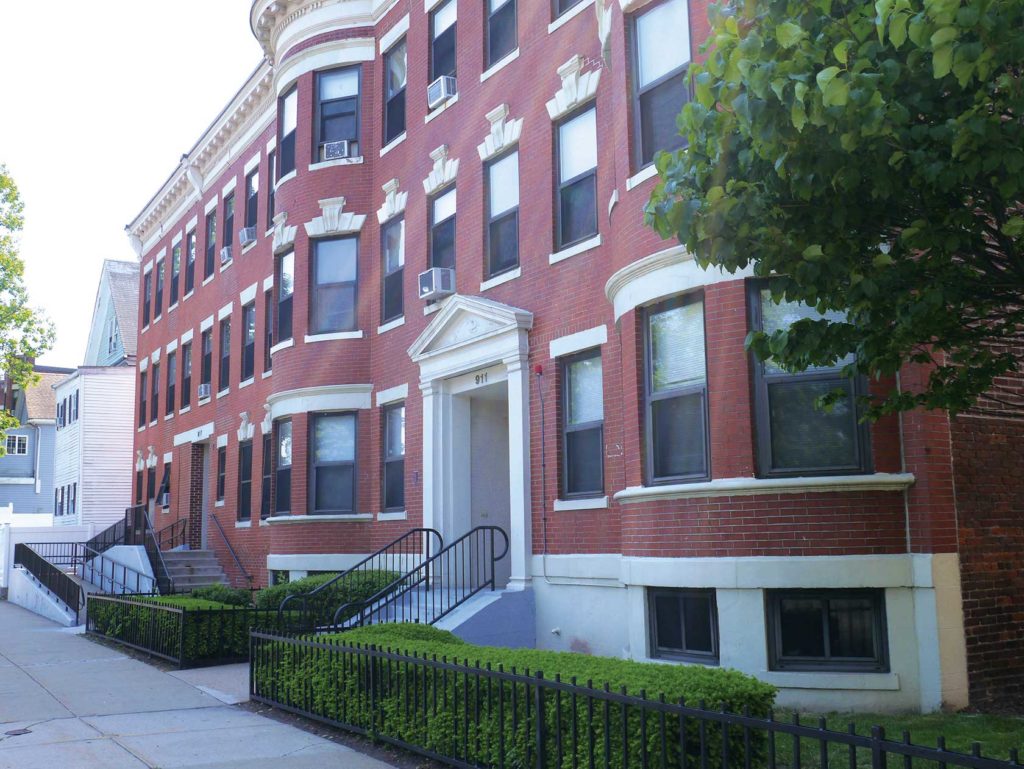
As part of Mayor Michelle Wu’s ongoing effort to implement rent stabilization in Boston, city property owners were called upon Thursday to share their thoughts on how best to implement the controversial policy.
More than 100 attendees tuned into an evening Zoom meeting on July 22 to add their testimony. The majority were property owners with multiple holdings across the city; others included housing advocates, city employees and media.
During the hour-and-a-half-long session, many of the property owners spoke vehemently against the policy, saying it would mean ruin for their livelihoods amid ongoing inflation and general economic downturn in the wake of the coronavirus pandemic.
“So you rent an apartment for $1,500 or $1,800. And you’re including heat because you’re very kind to your tenants. And suddenly the heat bill goes from $300 to $1,800 and you’re subject to rent control and you can’t raise it immediately,” landlord Stuart Schrier said last Thursday. “I’m not going to be paying for heat for somebody else and you tell me how much I’m going to charge. They’re not my children.”
Many also cited the rent control policy in Boston’s past, which was repealed by a statewide ballot initiative in 1994. Throughout the process of gathering feedback on rent stabilization, which began in May, opponents have pointed to rising rents in the wake of the more than 20 years rent control was legal in the Bay State. Specifically, opponents have argued that rent control reduced the number of available apartments, therefore driving up market rates.
However, there were a handful of small landlords — mainly in owner-occupied multi-family homes renting their spare units — that spoke in favor of rent control in Boston.
“I very much believe in rent control policy,” said East Boston landlord Andres Del Castillo, a lead organizer with the group City Life/Vida Urbana. “As a small homeowner, I believe that exemptions for small homeowners will go a long way and there absolutely should be support for small homeowners making adjustments and upgrades to their units and making sure upkeep is there. But I think all of that can be done in a sensible rent control policy, and I look forward to it being implemented here in Boston.”
With the policy proposal in its early stages, city officials have laid out the opportunity for the public to guide the specifics, including exemptions that could likely include “small landlords” or owner-occupied properties. Additionally, a part of the forum Thursday asked for input on what would define “small landlords,” as vocal opponents of rent control have holdings ranging from a handful of properties to hundreds of units.
Also among the large number of anti-rent-control voices present in Thursday’s meeting was Douglas Quattrocchi, executive director of MassLandlords who said it was unfair to not have included landlords on the committee designing the rent control policy, and that rent control will only exacerbate the existing housing crisis.
“A small landlord will wait a long time before taking any action that could hurt a renter, as opposed to a large landlord, which has a push button,” he said.
Wu’s rent stabilization advisory committee is currently made up of affordable housing advocates, housing experts and local scholars.
Also a popular sentiment running through the rent control discussions of the last few months has been that the mayor ran her campaign largely on the promise of creating rent stabilization programs for citizens struggling to afford housing in Boston. And as such, it would seem that property owners opposed to the initiative may be a vocal minority.
“We have a mayor who was elected, overwhelmingly, who said she was in support of rent control as one of the tools to solve the housing crisis we’re in,” said Jamaica Plain resident Laura Foner, who rents out an apartment in her two-family home. “And in terms of the questions that are being asked, I think that a lot of these issues can be dealt with in a policy that we create together.”
Many of those who spoke unfavorably of rent control did say, however, that the city does face a critical housing crisis — but that rent control is not the solution. Instead, several said the city would be better served building new affordable housing units and slowing the development of luxury units in neighborhoods occupied by middle- and low-income Bostonians.
“The development community is a critical sector of Boston, from creating affordable housing units to implementing critical climate resiliency measures protecting our neighborhoods and encouraging further investment in our communities,” said Tamara Small, CEO of NAIOP, Massachusetts’ commercial real estate development association.
Several additional forums are planned as part of the mayor’s rent stabilization proposal plan.






